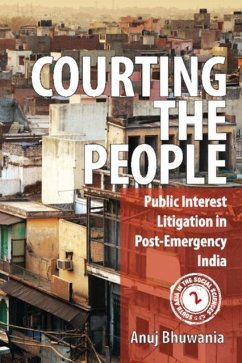Based on empirical research, this book shows how public interest litigation (PIL) grants the appellate courts enormous flexibility in procedure, allowing them to manoeuvre themselves into positions of overweening authority. While PIL cases are usually politically analysed solely in terms of their effects, whether beneficial or disastrous, this book locates the political challenges that PIL poses in its very process, arguing that its fundamentally protean nature stems from its mimicry of ideas of popular justice. It examines PIL as part of a larger trend towards legal informalism in post-Emergency India. Casting a critical eye over these institutional reforms that aimed to adapt the colonial legal inheritance to 'Indian realities', this book looks at the challenges posed by self-consciously culturalist juridical innovations like PIL to ideas of fairness in adjudication, as well as democratic politics.
Dieser Download kann aus rechtlichen Gründen nur mit Rechnungsadresse in A, B, BG, CY, CZ, D, DK, EW, E, FIN, F, GR, HR, H, IRL, I, LT, L, LR, M, NL, PL, P, R, S, SLO, SK ausgeliefert werden.


